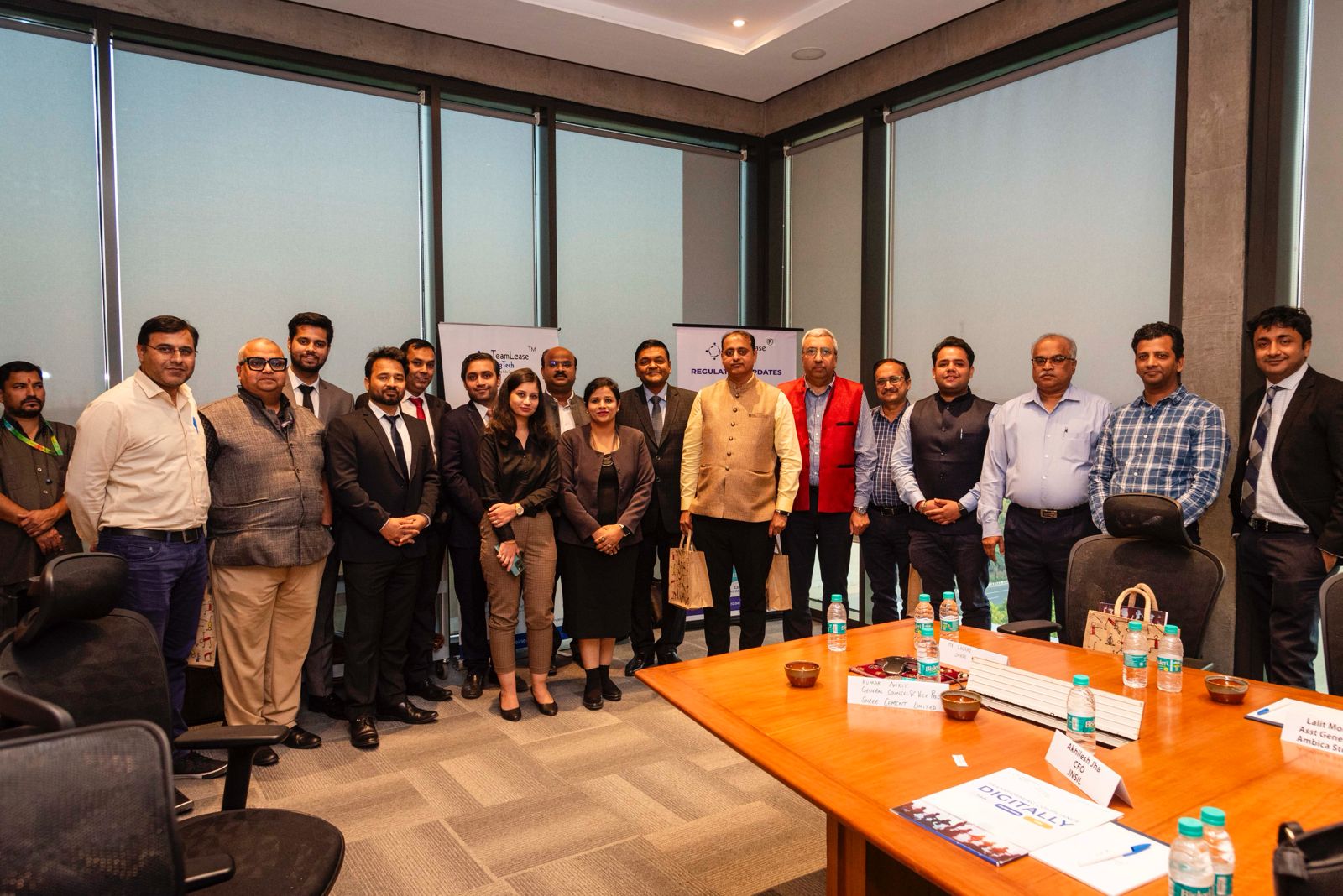The New Delhi edition of the Compliance Roundtable, organised by TeamLease RegTech, welcomed corporations from various economic sectors and industries. The roundtable had representatives from broadcast and news media, automotive component manufacturing, aviation, advertising and public relations, chemicals, manufacturing, real estate, financial services, electronics manufacturing, pharmaceuticals, and measuring equipment manufacturing among others. The agenda for the roundtable was the business compliance framework in India. The discussion centred around the complexities in the regulatory environment, including criminal provisions for compliance failure, multiplicity of documentation, fluid compliance ecosystem, and lack of digitalisation, among others. TLRegTech is the country’s leading regulatory technology company transforming compliance. Its digital solutions are trusted by over 1,500 entities and 25,000 enterprises in 45 industries, helping corporate India stay on the right side of the law.
Mr. Manish Sabharwal, Vice Chairman (TeamLease Services), opened the discussion with key insights into the present and future of the business environment in India. He emphasised the critical role of technology in the digital transformation of the economy. The discussants were then welcomed by Mr. Rishi Agrawal, CEO and Co-founder (TeamLease RegTech). Mr. Rishi further presented a brief overview of the compliance framework for businesses in India and laid the foundation for the roundtable.
During the course of the discussion, the panel unanimously agreed that compliance is not a single person’s job but a collective responsibility. However, in navigating the intricate web of regulatory compliance, creating ground-level awareness is often overlooked as there is no comprehensive checklist. In addition, principal employers are held to a higher level of responsibility and are held accountable for the actions of their agents. However, there is an accepted notion within the industries that 100% compliance is not possible. One key factor behind this peculiar circumstance is that it is extremely difficult for a company to compile a list of all laws and regulations that are applicable to its business. As a corporation grows into a larger entity with multiple subsidiaries, contractors, agents, and group companies, keeping track of all applicable compliances becomes exponentially onerous.
While fear of non-compliance ensures that enterprises remain vigilant of any pending obligations, the element of practicality also needs to be considered. The discussants agreed that even the sectoral regulators are aware that a significant number of entities are non-compliant with some provision or the other. Consequently, self-regulation can be the key to unlocking the shackles of regulatory cholesterol.
The industry experts expressed their opinions on how Regulation 30 of the LODR regulations was a challenging requirement. Corporations are finding it difficult to stay on top of the disclosures required under the abovementioned regulation. Whether it’s manufacturing or services, corporations admitted to struggling with SEBI compliances due to missed deadlines. The lack of compliance officers and professionals is also contributing to the complexity of the situation.
There was a consensus on how they do not remember the number of compliances their parent organisations have missed in the recent past. This demonstrated the challenge of staying up-to-date with regulatory requirements. Discussants agreed that a robust compliance management system has become an essential requirement to deal with the fluid and dynamic nature of the regulatory ecosystem. Fear of penalties has been driving timely compliance across industries such as aviation, wherein careful planning is essential to avoid sanctions. The discussion then turned towards how certain industries, such as cement manufacturing, have to choose between remaining compliant or increasing production, as choosing to be compliant would mean compromising their business.
The roundtable discussion concluded with a call for moving towards proactive compliance. The discussants agreed that just because they were not being served with notices does not mean their organisation is completely compliant. As such, it is better to be prepared for upcoming obligations than to be accidentally compliant. New-age board members have recognised the need for creating a culture of compliance. They have understood that the compliance officer is not the sole person responsible for ensuring compliance of the entire business. It is the responsibility of the entire organisation. The discussion ended on the note that while compliance may seem expensive, it falls pale when confronted with the cost of non-compliance.


